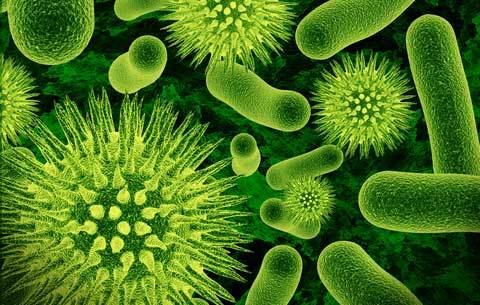Colon Cancer Linked to Low Diversity of Gut Bacteria

People who have a less diverse population of bacteria in their gastrointestinal tracts may be more likely to get colon cancer, a new study suggests.
Researchers also found that people who were diagnosed with colon cancer had fewer beneficial bacteria, and more harmful bacteria than people without the disease.
"For the first time, we found that colorectal cancer patients have a different gut bacteria composition than healthy subjects," said study author Jiyoung Ahn, an assistant professor of epidemiology at the NYU School of Medicine in New York.
"This research, although in an early stage, is pointing to the possibility that gut microbes are involved in colon cancer development," Ahn said. [5 Ways Gut Bacteria Affect Your Health]
Further study could open up new ways to protect against this serious disease, she said. Colorectal cancer is the second-leading cause of cancer deaths in the United States, and it claims the lives of more than 50,000 Americans a year, according to the American Cancer Society.
The study was published online today (Dec. 6) in the Journal of the National Cancer Institute.
Decreased diversity
Sign up for the Live Science daily newsletter now
Get the world’s most fascinating discoveries delivered straight to your inbox.
The human gut contains trillions of bacteria that play roles in digestion, inflammation and immunity. Researchers are just beginning to understand how differences in the gut's bacterial composition might influence health, in general, and diseases such as colon cancer, in particular.
In the study, researchers looked at stool samples of 47 people who were newly diagnosed with colorectal cancer, and compared them with samples from 94 healthy adults without the disease. They compared the intestinal microbes in the samples by analyzing their DNA.
They found that fecal samples from people who had colon cancer had less bacterial diversity compared with samples from healthy individuals, even when they controlled for age, sex, body mass index, race and smoking, factors that can all influence disease risk.
A lower amount of bacterial diversity in the gut may indicate a lack of balance in the complex bacterial population residing there, Ahn said.
The study found an association, not a cause-and-effect link, between gut bacterial diversity and colon cancer.
"It will take more research to determine if this decreased diversity leads to colon cancer, or is a response to having the disease," she told LiveScience.
The researchers also looked at the specific types of bacteria present in the stool samples, and found colon cancer patients tended to have higher levels of Fusobacterium, a type of bacteria that appears to promote inflammation in the gut, which can fuel cancer growth.
And the patients often had lower levels of Clostridia, a bacterial class that may prevent the development of colon cancer by helping to break down dietary fiber and carbohydrates, according to the study.
Changing gut bacteria
The study authors said that because the composition of gut bacteria is potentially modifiable, their results may have practical implications for the prevention of colon cancer.
Ahn said that additional research could lead to ways to alter gut bacteria to promote health. She said that some suspected factors that could affect the amount of diversity in gut bacteria include diet, such as a person's intake of fruits, vegetables and beans (all rich sources of fiber), as well as obesity.
In an editorial published along with the study in the journal, Volker Mai, an associate professor of epidemiology at the University of Florida in Gainesville who also studies the composition of gut bacteria, wrote "this new work is exciting because it may provide insights into future ways to reduce the risk of colorectal cancer."
But he also cautioned that much more research needs to be done before promoting changes in gut bacteria as a prevention strategy for the disease.
Mai also suggested that some of the same factors that influence a person's colon cancer risk, including diet, physical activity and obesity, can also influence the composition of gut bacteria. This would make it difficult, he said, to separate out whether it's a cause of colon cancer, or an effect of it.
Follow us @livescience, Facebook & Google+. Original article on LiveScience.
Cari Nierenberg has been writing about health and wellness topics for online news outlets and print publications for more than two decades. Her work has been published by Live Science, The Washington Post, WebMD, Scientific American, among others. She has a Bachelor of Science degree in nutrition from Cornell University and a Master of Science degree in Nutrition and Communication from Boston University.









